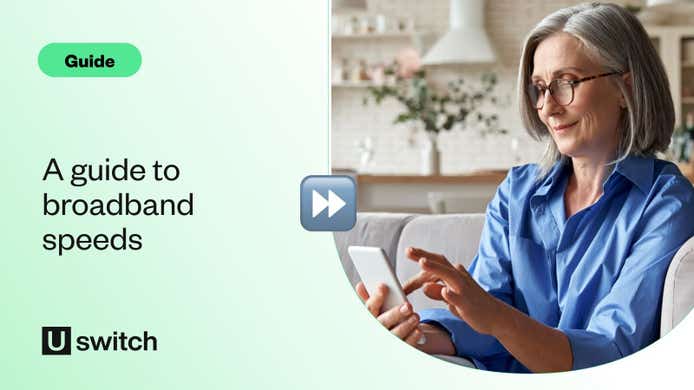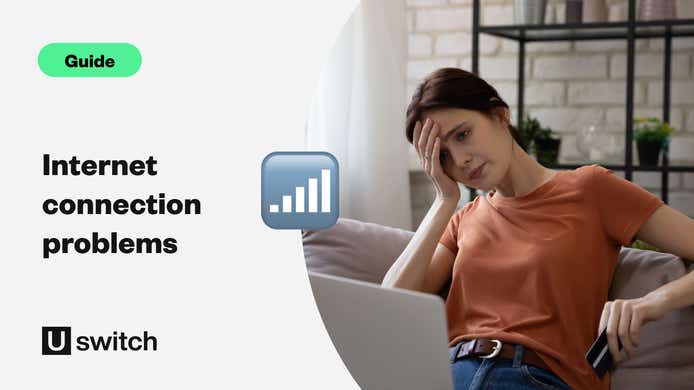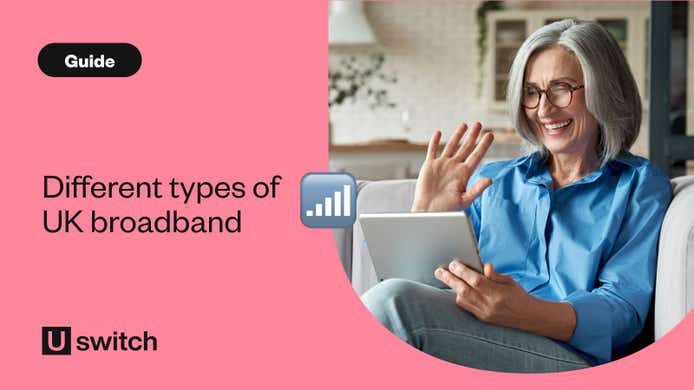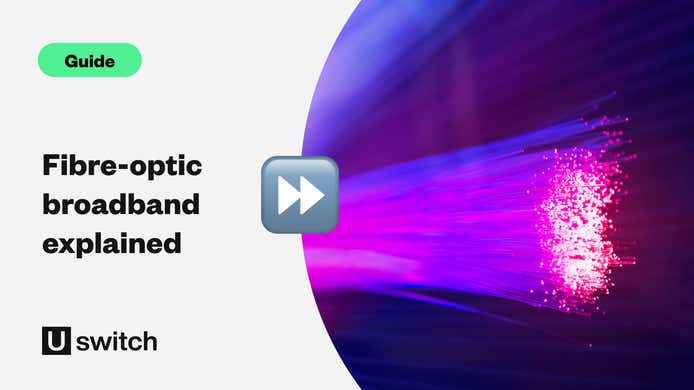Tip: Once you've calculated your first download time, scroll down on the tool and press Start Again to calculate more speeds
What is a good download speed?
For very small households with little internet use, a good download speed is at least 10-11Mbps for standard ADSL broadband. But to support multiple internet users or high-data tasks like 4K streaming or big file downloads, a good download speed would be in excess of 60Mbps, which typically falls into the category of superfast broadband.
But speeds in the UK are also rapidly going beyond this point. If you’re looking for internet that can handle anything, then an ultrafast download speed of 100Mbps+ will ensure there’s never an interruption or lag in your service.
Download speed versus ping rate
One of the biggest influences on your online gaming experience is latency and response time, the delay between the action in the game and when it's displayed on your screen. Your ping rate is the speed at which you get a response from your Internet connection after sending a request. For example, if you have a ping rate of 150ms, your computer takes 150 ms to respond to a request by another computer.
Therefore, if your ping rate is higher than your opponent's, your responses will be slower, and their moves will register first. In fast-paced games, you'll want as little ping as possible.
Reducing the number of devices on your home network helps, as well as closing as many tabs and programs as possible if gaming on a PC. If your network is often busy, upgrading to a higher-speed broadband connection can decrease latency and give you an overall better gaming experience.
Browse our range of fibre broadband deals
Choose between our wide range of fibre broadband deals on Uswitch.
How download times are calculated
Now you understand different computer sizes, the next step is to calculate the download time or duration of a file.
The process involves a straightforward division of the file size intended for transfer by the network's transfer speed. However, it's important to exercise caution with the units employed, as they can be a source of confusion.
The following equation can be applied to determine the time required to download a 400 MB video over a 5Mbps internet connection: Download time = File size / Bandwidth.
| File size | Internet speed | Time to download |
|---|---|---|
| 5GB | 50Mbps | 13min, 20sec |
| 5GB | 300Mbps | 2min, 13sec |
| 5GB | 1Gbps (1000Mbps) | 40sec |
| 50GB | 50Mbps | 2hr, 13min, 20sec |
| 50GB | 300Mbps | 22min, 13sec |
| 50GB | 1Gbps (1000Mbps) | 6min, 40sec |
Video game download calculator
While each gaming platform is slightly different, the minimum download speed you need for online gaming is 3Mbps. But your speed will also affect how quickly you can download games.
Many of the most popular titles nowadays reach over 100GB in size, which is a massive file size that takes a while to download on lower broadband speeds. Depending on your internet speed at home, it could take minutes to hours to days. That's why it is important to calculate download times.
However, your download speed isn't the only factor affecting your online gaming experience. You'll need a decent upload speed and a ping rate of less than 150 ms (milliseconds), which helps your game's 'response time' while playing against others and means you can improve your chances in competitive multiplayer games.
Keep in mind that these requirements will go up for each additional player in your household and that they don't consider your internet being used for any other activity at the same time (which is highly unlikely).
Newer, high-resolution games, such as those that use 4K streaming, will place the biggest demands on your broadband, and a download speed of 3Mbps will definitely not be enough.
And given that most blockbuster video game titles come in at dozens of GBs in size, how long it will take to download the actual game files will also depend on your broadband speed too. Take a look at our report on video game download times around the world to see how long Brits have to wait compared to other nationalities.
Visit our gaming broadband hub
Find out all you need to know about getting the right broadband for gaming.
Test your current broadband speed
If you want to know how fast your broadband connection is, take our quick speed test. This will give you a clearer idea of how long each file listed above will take to download in your home.
After taking the test, Uswitch will show you a range of broadband deals available in your area. If you're unhappy with the speed you're receiving, you could get a much better internet speed for you and your household by switching to a new service.
Take a broadband speed test
Run a broadband speed test to find out what speed you're currently getting, and what else could be available to you.
How to increase your download speed
First, make sure that you’re making the most of your current broadband connection. Ensure there are no faulty connections or loose wires connecting your router to the broadband line.
Check that you’re getting a good Wi-Fi signal throughout your home and make sure your hub is in a central location, not blocked by large items of furniture or electrical equipment.
Wi-Fi extenders might be a good idea if you live in a larger house, or if you can't move your router to a more open location.
If your Wi-Fi signal is strong but your broadband speed is still slow, you might want to think about upgrading your current subscription.
Browse our range of broadband-only deals
Choose between dozens of broadband deals on Uswitch.
How to download on Netflix
Netflix allows you to download films and TV shows to watch offline via the Netflix app. Within the Netflix app on your smartphone or tablet, simply tap on the download icon to save the episode or movie to your device.
The download speed will depend on the version you select. For example, the first episode of Stranger Things is 197.1MB in Standard quality and 310.1MB in High quality. Or a one-hour episode of Black Mirror is about 280MB in Standard quality and 440MB in High.
How to understand different computer file sizes
File size is the amount of volume of data stored in a file or the space occupied by a file on storage media such as internal/external drives, network drives, File Transfer Protocol (FTP) servers, or the cloud.
File sizes are measured in Bytes (B), Kilobytes (KB), Megabytes (MB), Gigabytes (GB), Terabytes (TB), and so forth. Measurement can be based on a binary system (where a kilo denotes 1024) or a metric system (where a kilo denotes 1000).
Data transfer speed gauges the amount of data moved from one location to another within a specified time frame. Speeds are expressed in bits per second (b) or bytes per second (B), with a lowercase "b" representing a bit and an uppercase "B" representing a byte. For instance, Kbps means 'Kilobits per second,' while KBps signifies 'Kilobytes per second.'
Megabits vs megabytes
In order to understand download times, you need to understand the difference between bits and bytes, and how they impact your download speeds. While they may sound similar, they’re actually quite different.
They both represent an amount of data, just different amounts of data. A bit is a binary digit of 1 or 0 and a byte is equal to eight bits. A bit is represented by a lowercase b and a byte with an uppercase B. This means that a kilobyte (KB) is eight times larger than a kilobit (Kb), and a megabyte (MB) is eight times larger than a megabit (Mb). Confused already, we don’t blame you.
Part of the reason for the confusion is that file sizes are usually displayed in bytes, but internet speeds are always shown in bits.
Mbps meaning
All internet speeds are measured in bits per second, and so a broadband package with an average speed of 8Mbps means the maximum you will get is eight megabits per second or the equivalent of one megabyte per second.
Technically, all internet speeds should be written as 'Mbps' and not 'Mb' because without specifying the time taken, it's a size, not a speed.
When you’re quoted a download speed, it’s important to remember that it is an average. And you won’t always be able to achieve that speed too. A download time is affected by many things:
- Line sharing (also known as contention ratio)
- Time of day
- The distance from telephone exchange and quality of wiring (in your house and in the street) all factor into your actual broadband speed
The main exception to this rule is if you're using a full fibre connection, also known as fibre to the premises (FTTP), which is unaffected by the distance you live from the exchange.
Even with this more reliable kind of connection, however, your speed will still be impacted by the number of customers using the service at any one time.
Download calculator FAQs
How long does it take to download a 100GB file?
- At 50Mbps: 4 hours, 26 mins, 40 seconds
- At 150Mbps: 1 hour, 28 minutes, 53 seconds
- At 500Mbps: 26 minutes, 40 seconds
- At 1Gbps: 13 minutes, 20 seconds
Why has my download taken longer than the calculator result?
Download time tools calculate the time it takes to download a file if the speed remained the exact same for that entire period. But in reality, internet speeds are constantly going up and down because of the infrastructure they rely on.
This is why speeds on broadband packages are advertised as 'average' broadband speeds, because many factors go into the bandwidth you get at your home in any given time.
To find out more, you can read our slow internet guide.




